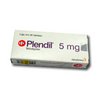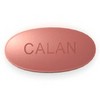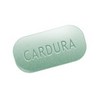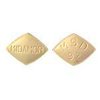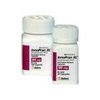Do NOT use Clonidine if:
- you are allergic to any ingredient in Clonidine
- you are pregnant, in labor, or about to begin labor
- you have bleeding problems
- you are taking an anticoagulant (eg, warfarin, heparin).
Contact your doctor or health care provider right away if any of these apply to you.
Some medical conditions may interact with Clonidine. Tell your doctor or pharmacist if you have any medical conditions, especially if any of the following apply to you:
- if you are pregnant, planning to become pregnant, or are breast-feeding
- if you are taking any prescription or nonprescription medicine, herbal preparation, or dietary supplement
- if you have allergies to medicines, foods, or other substances
- if you have kidney problems, porphyria, or depression
- if you have blood vessel disease affecting the brain or severe heart disease, or you have had a stroke or a recent heart attack
- if you are scheduled for surgery.
Some medicines may interact with Clonidine. Tell your health care provider if you are taking any other medicines, especially any of the following:
- Beta-blockers (eg, propranolol), calcium channel blockers (eg, verapamil), or digitalis because a severe decrease in heart rate may occur
- Tricyclic antidepressants (eg, amitriptyline) because the effectiveness of Clonidine may be decreased and certain side effects may be increased
- Anticoagulant therapy (eg, warfarin, heparin) because the risk of bleeding at the injection site may be increased.
This may not be a complete list of all interactions that may occur. Ask your health care provider if Clonidine may interact with other medicines that you take. Check with your health care provider before you start, stop, or change the dose of any medicine.
Important safety information:
- Clonidine may cause drowsiness, dizziness, or lightheadedness. These effects may be worse if you take it with alcohol or certain medicines. Use Clonidine with caution. Do not drive or perform other possibly unsafe tasks until you know how you react to it.
- Do not drink alcohol or use medicines that may cause drowsiness (eg, sleep aids, muscle relaxers) while you are using Clonidine; it may add to their effects. Ask your pharmacist if you have questions about which medicines may cause drowsiness.
- Clonidine may cause dizziness, lightheadedness, or fainting; alcohol, hot weather, exercise, or fever may increase these effects. To prevent them, sit up or stand slowly, especially in the morning. Sit or lie down at the first sign of any of these effects.
- Do not suddenly stop taking Clonidine. Doing so may cause withdrawal symptoms like nervousness, irritability, or shakiness. You could also get a headache and high blood pressure. The risk of these effects may be greater if you have been taking high doses of Clonidine. The risk may also be greater if you are taking a beta-blocker (eg, atenolol). Rarely, very serious effects like increased blood pressure in the brain, stroke, or death have occurred. Check with your doctor before you change your dose or stop Clonidine.
- If you experience dry mouth, use candy or gum, or melt bits of ice in your mouth.
- Use Clonidine with caution in the elderly; they may be more sensitive to its effects, especially dizziness.
- Clonidine should be used with extreme caution in children; safety and effectiveness in children have not been confirmed. Use is limited to patients old enough to tolerate placement and management of an epidural catheter.
- Pregnancy and breast-feeding: If you become pregnant, contact your doctor. You will need to discuss the benefits and risks of using Clonidine while you are pregnant. Clonidine is found in breast milk. If you are or will be breast-feeding while you use Clonidine, check with your doctor. Discuss any possible risks to your baby.
If you stop taking Clonidine suddenly, you may have withdrawal symptoms. These may include nervousness, agitation, headache, tremor, and rapid increase in blood pressure.


